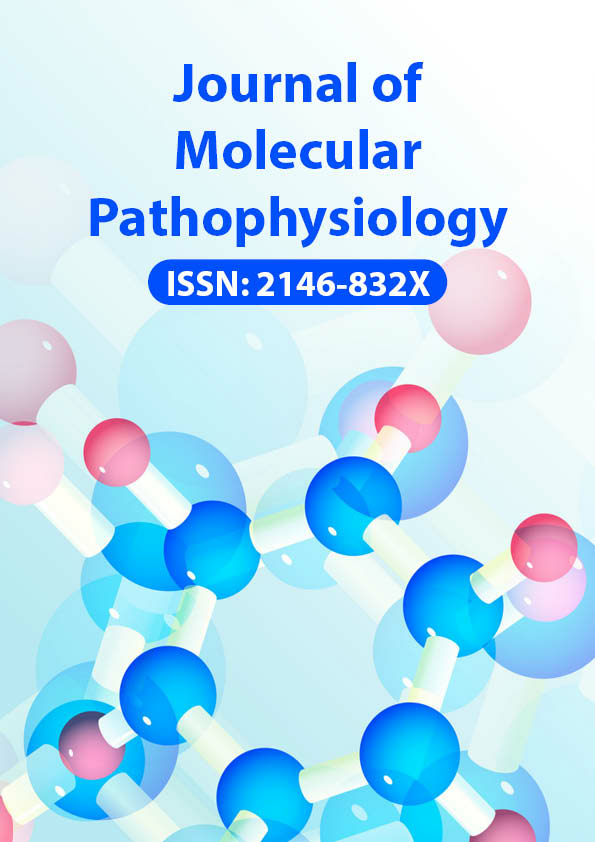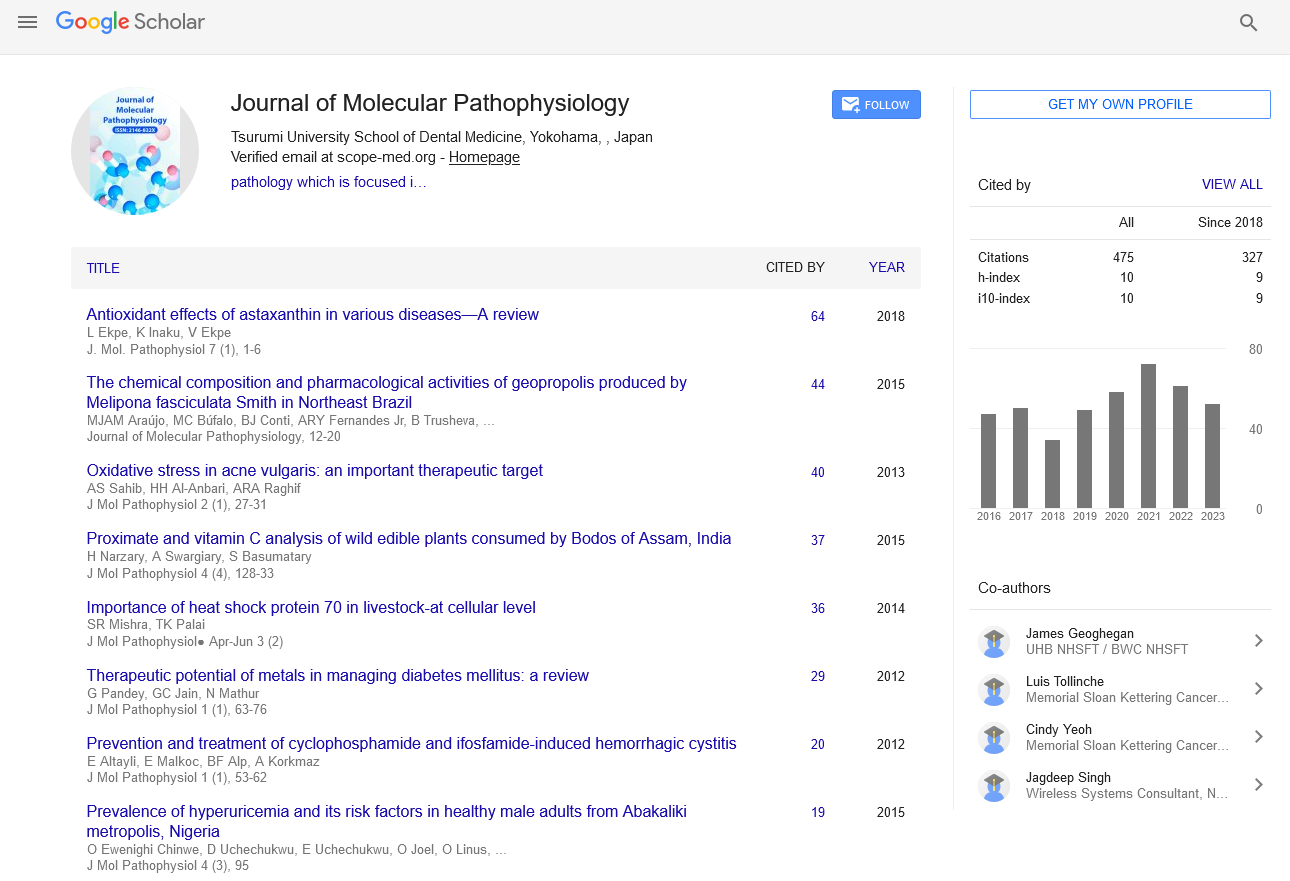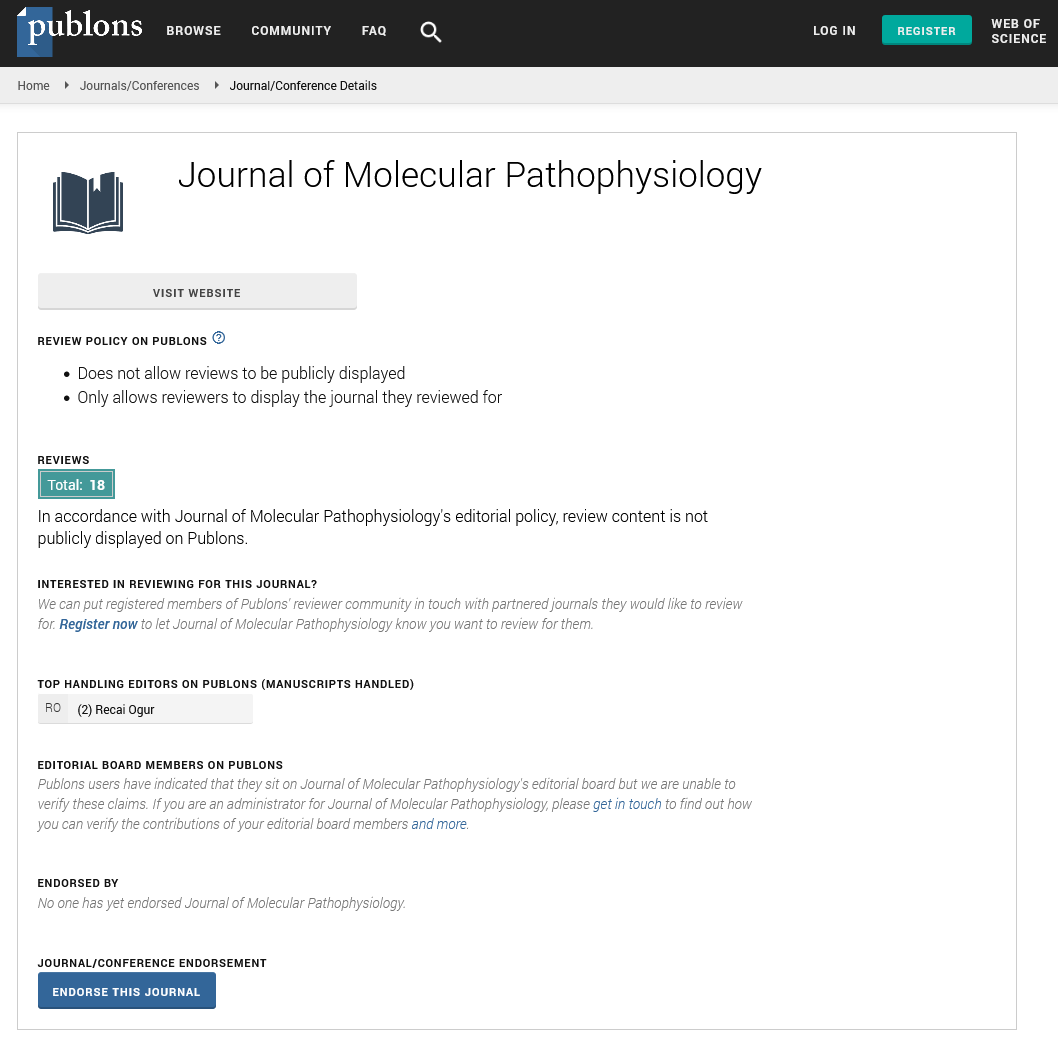Inflammatory phenotype of circulating endothelial-derived microparticles in chronic heart failure patients with metabolic syndrome
Abstract
Alexander E Berezin, Alexander A Kremzer, Tatyana A Samura, Tatyana A Berezina
Background/Aim: Metabolic syndrome (MetS) may have an adverse impact on cardiovascular events in unselected populations. However, the role of MetS in chronic heart failure (CHF) subjects remains controversial. Endothelial-derived microparticles (EMPs) may play a pivotal role in cell-to-cell cooperation, effects negatively on tissue reparation, and mediates vascular function. Pattern of circulating EMPs probably reflects imbalance between endothelial cell injury and endothelial repair. Aim of the study is to investigate an inflammatory pattern of circulating EMPs in MetS patients with CHF. Methods: The study retrospectively evolved 101 patients with MetS (54 subjects with CHF and 47 patients without CHF) without documented coronary artery stenosis >50% at least of one artery and 35 healthy volunteers. Biomarkers were measured at baseline of the study. Circulating EMPs were phenotyped by flow cytometry technique. Results: We found CD62E+EMPs and CD62E+ to CD31+/annexin V+ ratio were elevated in healthy persons when compared with MetS patients. CD62E+ to CD31+/annexin V+ ratio was found to be higher in the MetS patients without CHF compared with MetS patients with CHF. Using multiple linear regression analysis, independent impact of based model (body mass index [BMI]), N-terminal brain natriuretic peptide (NT-proBNP), osteoprotegerin (OPG), and high-sensitive C-reactive protein (hs-CRP) on decreased CD62E+ to CD31+/annexin V+ ratio was found. We found that adding of combination of inflammatory biomarkers (hs-CRP, OPG, and NT-proBNP) to the BMI improved the relative integrated discrimination indices by 11.4% for decreased CD62E+ to CD31+/annexin V+ ratio. Conclusion: We found that biomarkers of biomechanical stress (NT-proBNP) and inflammation (hs-CRP, OPG) remain statistically significant predictors for decreased CD62E+ to CD31+/annexin V+ ratio in MetS patients with CHF.
PDF






